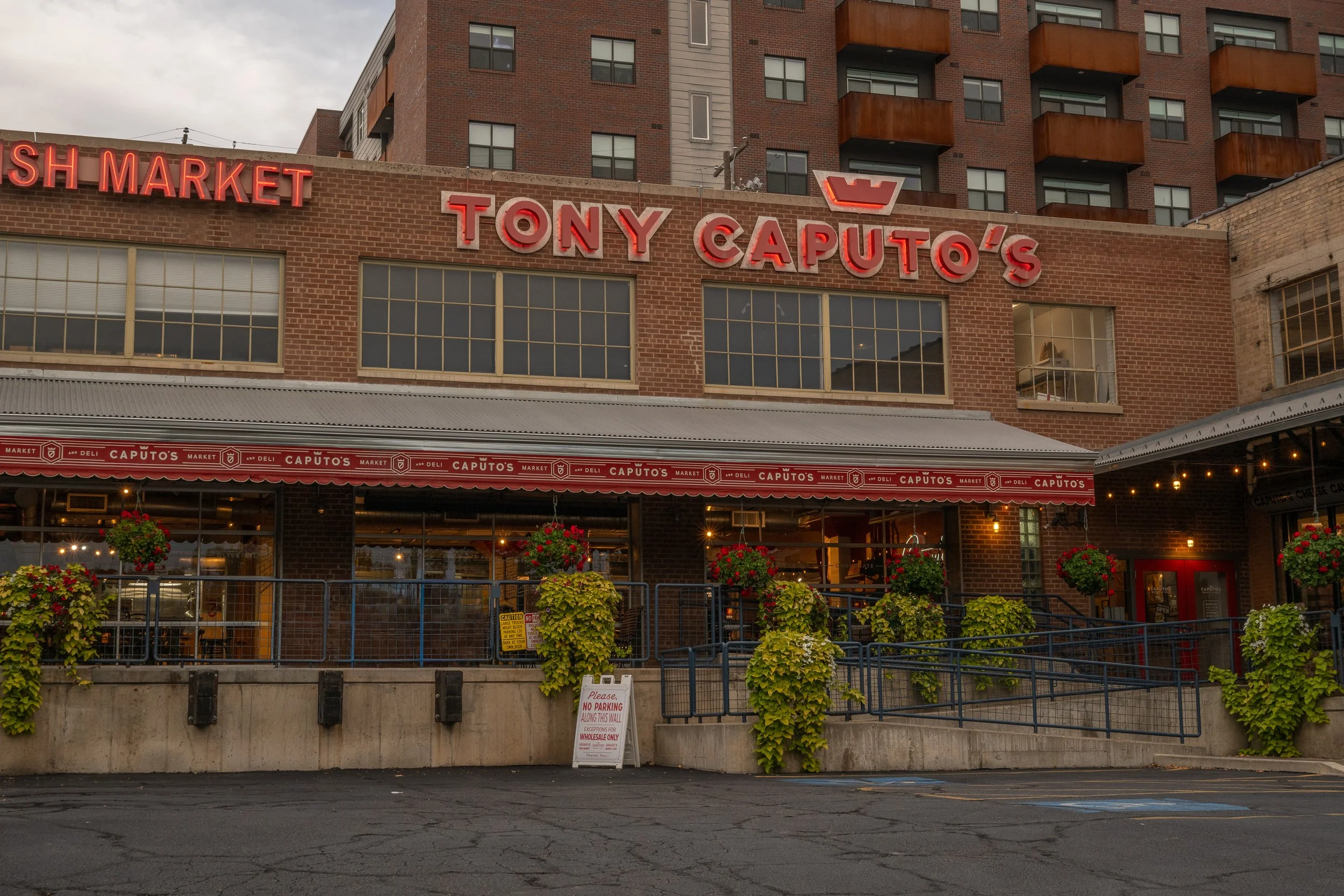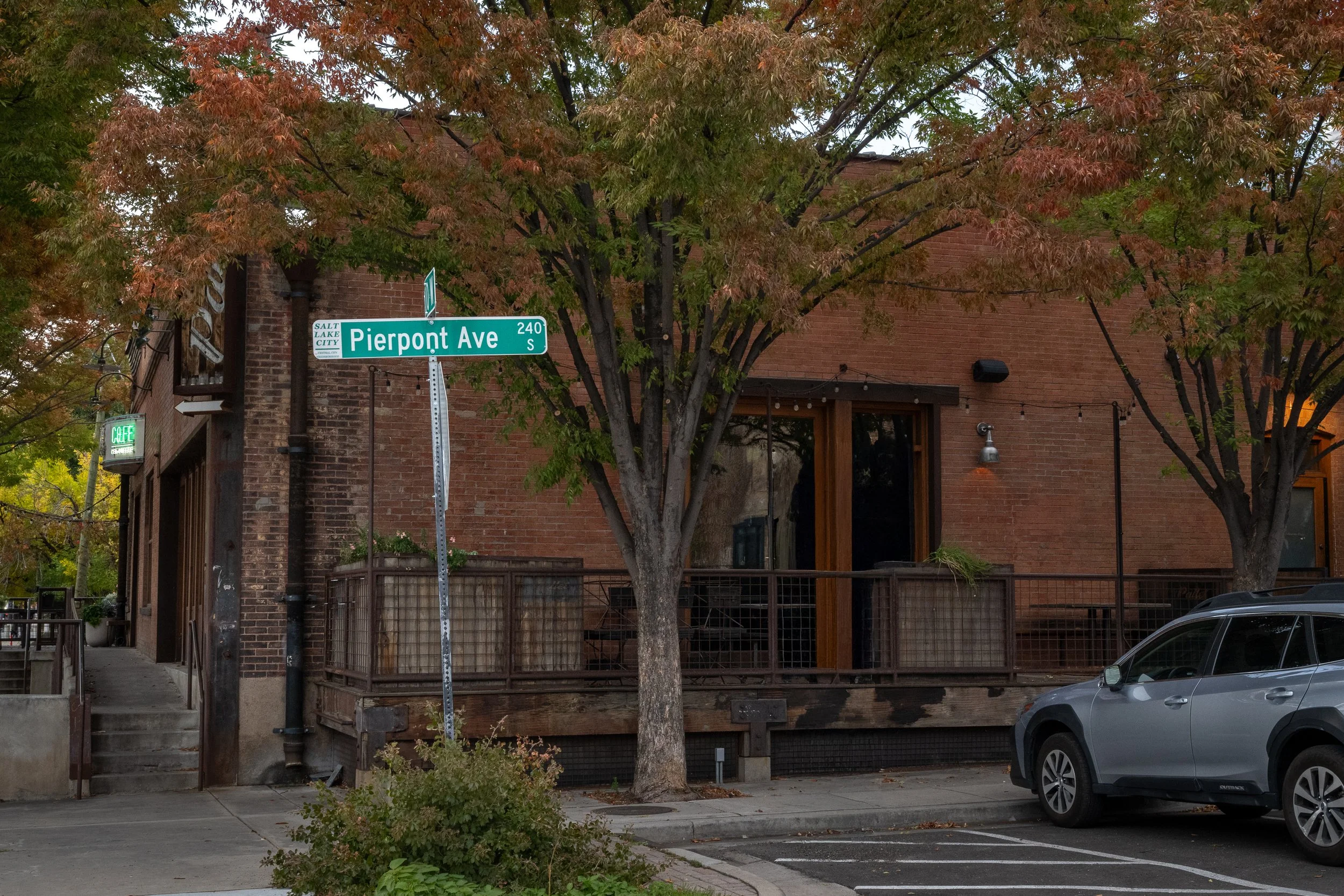Why Salt Lake City?
The house they’re standing in front of used to be on Pierpont Avenue in Salt Lake City, where the ramp from Interstate 15 to Interstate 80 westbound now sits. I never knew my mother’s Italian grandfather. He died of a heart attack when she was only four years old. But one day I was browsing real estate websites, which is one of my quirky pastimes, and I happened to notice a condo for sale on Pierpont Avenue. The pull was strong and we actually ended up getting a home only two miles from the one he lived in for forty years.
Dominic Colianna with his wife, Marta, and their children.
I think of him every time I pass Pierpont on my way to the Italian market across the street from Pioneer Park. Domonic used to be an unfamiliar face and date on a piece of paper, until he wasn’t. I would stumbled upon new details of his life almost every time I worked on my family tree. Eventually, it dawned on me that he suffered a lot of loss. I actually put together a color coded timeline for myself, in order to understand his entire story in a better light…
Italian market, Caputo’s, opened in 1997
We often organize our own memories by events: birth, education, marriage, etc. Perhaps one of the more impactful events in life is death. All of us experience the death of a loved one at some point, but we can usually count on one hand how many people we’ve lost until much later in life. Grandpa lost eleven by the time he was fifty—seven children, two spouses, and his parents.
Diphtheria. Tuberculosis. Cholera. Flu. Appendicitis. Cancer. Heart failure.
His first wife was only thirty-six when she passed, leaving him alone with his children. Dominic and Jennie had eleven children, and four of them had already died—and then sadly, another son died only two weeks following Jennie’s death.
Union Pacific depot, built in 1909
This was supposed to be an exciting time to be alive! Cars and airplanes had recently been invented. Dominic found another sweetheart, Marta, to help mother the children and heal his heartache. Union Pacific had expanded into Salt Lake City, and he was working for the railroad. “Talking pictures” were released to the public. Saltair Resort opened on the shores of the Great Salt Lake, and Dominic became a United States citizen. They even had four more children! But along the way, they lost two more sons, as well as Dominic’s parents. Then the Great Depression hit, and another big blow—Marta died of cancer when their youngest, my grandmother, was only three.
I wonder if he accepted these events as a part of life, or if it seemed to him like an overabundance of sorrow compared to other families in the neighborhood. How did he manage? How did he heal?
Their home is no longer standing here, and behind me as I take this picture is the freeway ramp.
I don’t tell this story to say, Look how good we’ve got it today! In fact, the world we live in now has its own kind of prevalent loss that deserves to be validated. But I do tell this story to point out something I realized. Did you see the loss in their eyes when you looked at their picture? I didn’t, when I first saw it. I only noticed a family, with a goat cart of all things. They looked content holding a bunny, two chickens, and a kitten. They must have loved their animals in order to include them in the family picture! And now, knowing of their struggles helps me understand that we’re not alone when we suffer. We’ve got a lot in common, both with those who have gone before, as well as those we pass on the street. The happy and sad is all mixed together like a big goopy mess. It’s survivable—and pretty normal.
So, why Salt Lake City? Because it’s where I was drawn—a sort of magical pull towards this place where my family has been. They were immigrants. Thanks to them I am a privileged American.
Downtown Salt Lake City on the corner of Pierpont and 400 West
This may be a bit of a downer post for those who like to focus on the positive. I’m not saying I don’t like to focus on the positive. Well, actually I don’t, if I’m going to be honest. I like to be more balanced and real. Acknowledging suffering is a kind of love that gets brushed aside too quickly, too often. It’s uncomfortable. Instead, we have been trained to count our blessings or face the world with a smile. But this kind of love, the kind where we allow people to mourn their losses on their own timetable, is a gift. There are a few people who have given this gift to me, and I find that it helped the joy return, like it always does. A miracle, if you will.
There are stories like this in your family. When you find them, your tree will come to life. Visit FamilySearch.org. It’s free and it may open a door to healing and connection like you’ve never experienced before.





